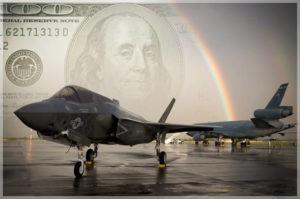 It’s a bleak revelation — a new study reveals that about a tenth of the Earth’s wilderness has been lost since the 1990s. Over the last 20 years, a total area half the size of the Amazon and twice the size of Alaska has been depleted.
It’s a bleak revelation — a new study reveals that about a tenth of the Earth’s wilderness has been lost since the 1990s. Over the last 20 years, a total area half the size of the Amazon and twice the size of Alaska has been depleted.
The researchers behind the study, published in the journal Current Biology, say they hope that the sobering revelation that rich natural habitats like the Amazon have been decimated in a relatively short amount of time will act as a wakeup call to global leaders to emphasize conservation efforts in their environmental protection policies.
When asked why these important, at-risk areas haven’t been better protected, study lead author James Watson points the finger at government leaders around the world.
“Put simply — no international treaty talks about the importance of wilderness or has any targets that nations must follow that limit their (wilderness areas’) loss,” Watson, an associate professor at the University of Queensland in Australia, wrote in an email to CBS News.
The study […]

Republican Representative Daryl Issa
Barack Obama’s presidency has been defined by a new understanding by Americans that the country has yet to truly confront racism. His nomination was greeted with optimism which quickly turned sour, with 69 percent of Americans saying race relations are generally bad, levels equal to those following the Rodney King acquittal. Police violence and structural inequities have led to the Black Lives Matter movement, while on the right, racism propelled Trump to the GOP nomination. It’s clear that solving America’s many problems, from rampant levels of inequality to unemployment to lagging education systems to rising health care costs, will require us to understand how racism and privilege plays out in our society.
Whites Don’t Believe They Have Privilege
How do Americans understand concepts like “white privilege” in our society? The American National Election Study (ANES), a 1,200-person survey performed this past January, is an ideal source of data because it asks questions about privilege that aren’t often included in academic surveys. We analyzed the dataset to explore how views of privilege relate […]

F-35
Credit: Matt Cardy
Twenty years since the Pentagon began taking bids from defense contractors, the F-35 fighter jet — the most expensive weapon ever made — is finally ready to see active duty over the Pacific Ocean. The U.S. Marine Corps expects to deploy 16 of the stealthy high-tech warplanes early next year at Iwakuni Air Station in Japan. From there, U.S. pilots will begin testing the jets in regular noncombat operations from the Navy’s USS Wasp amphibious assault vessel in what one commanding general has described as the “school of hard knocks.”
Years of delays, management shakeups, engine and software problems — and most important — cost overruns have made this Lockheed Martin jet initiative a punching bag and pork barrel project.
As far back as 2001, the cost of the program was termed astronomical, with […]

 Wealth at the top of the income distribution is skyrocketing, leading to growing inequality. This trend is especially pronounced in the United States. But much of the leading research on the topic isn’t coming from American economists.
Wealth at the top of the income distribution is skyrocketing, leading to growing inequality. This trend is especially pronounced in the United States. But much of the leading research on the topic isn’t coming from American economists.









